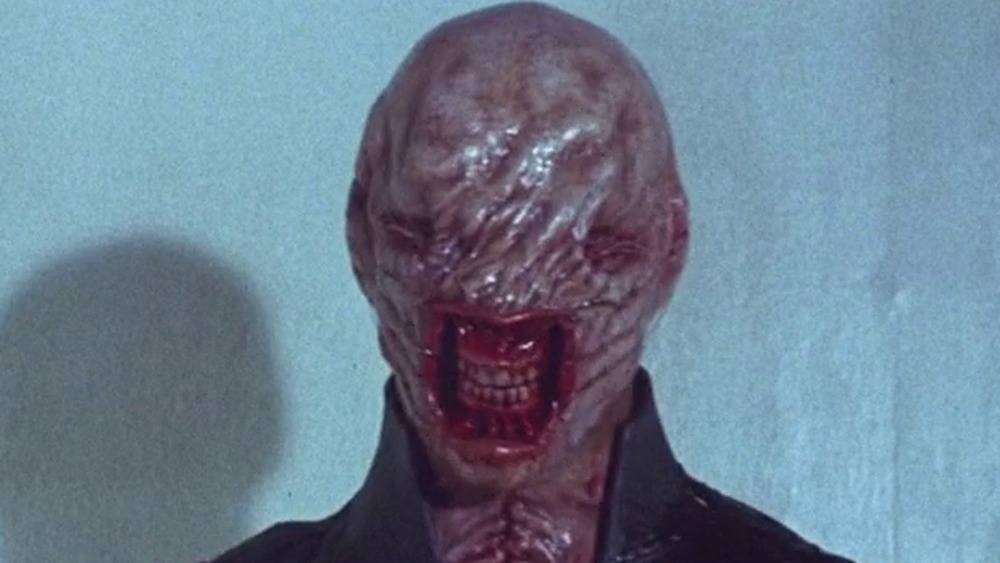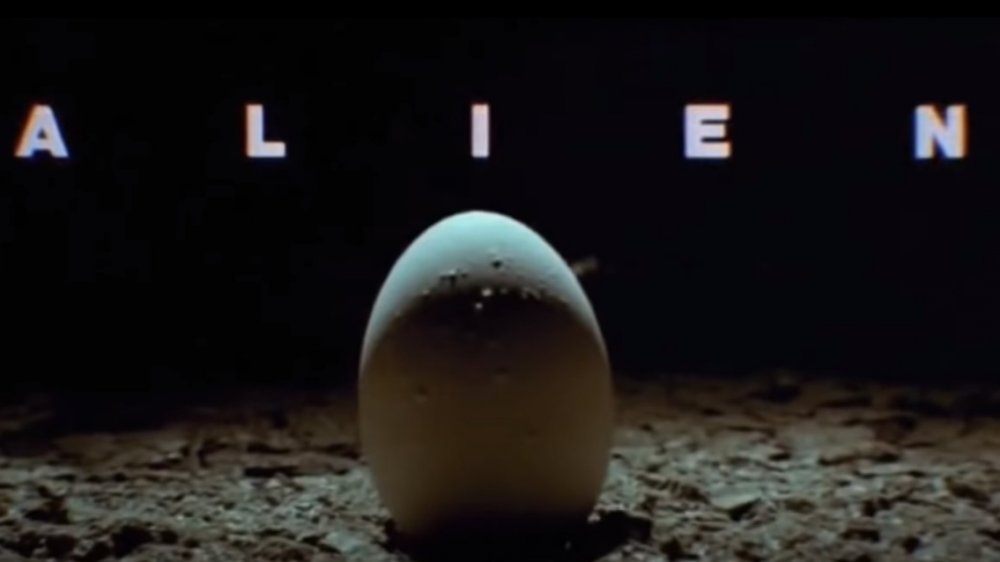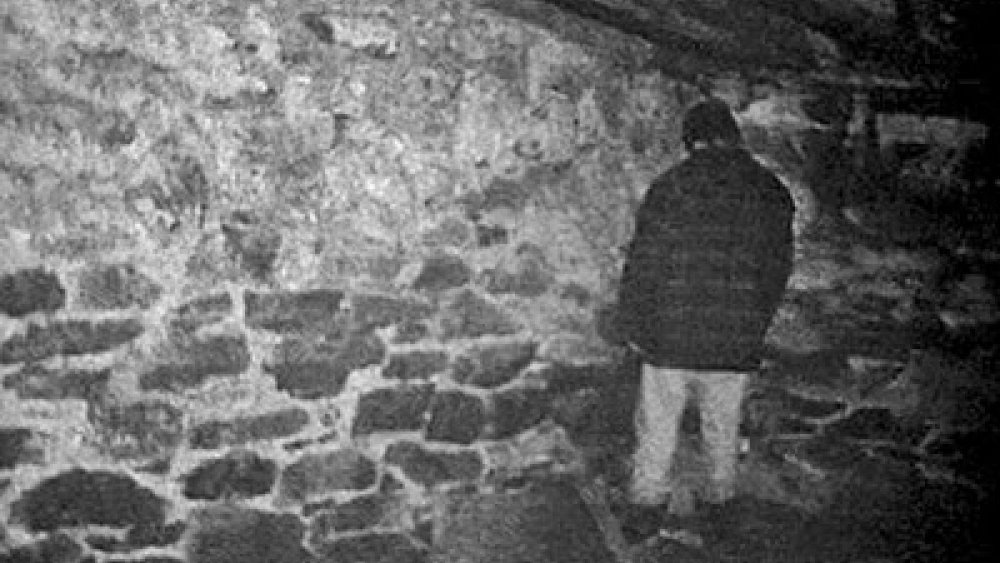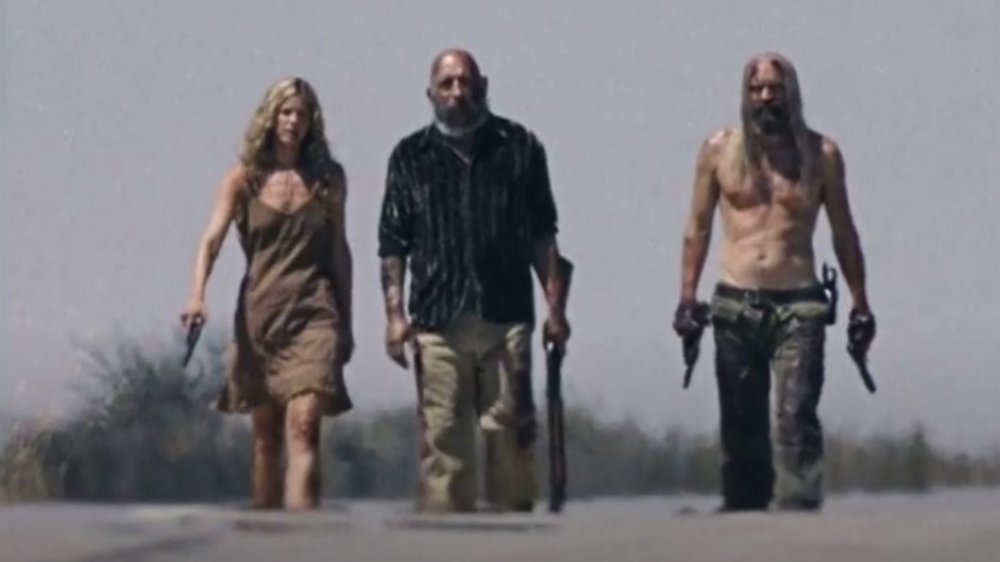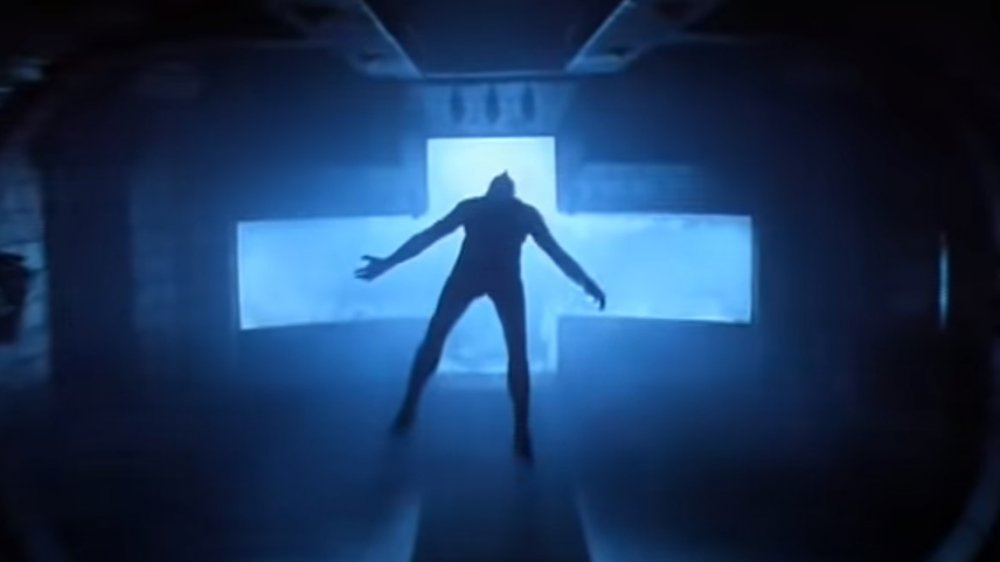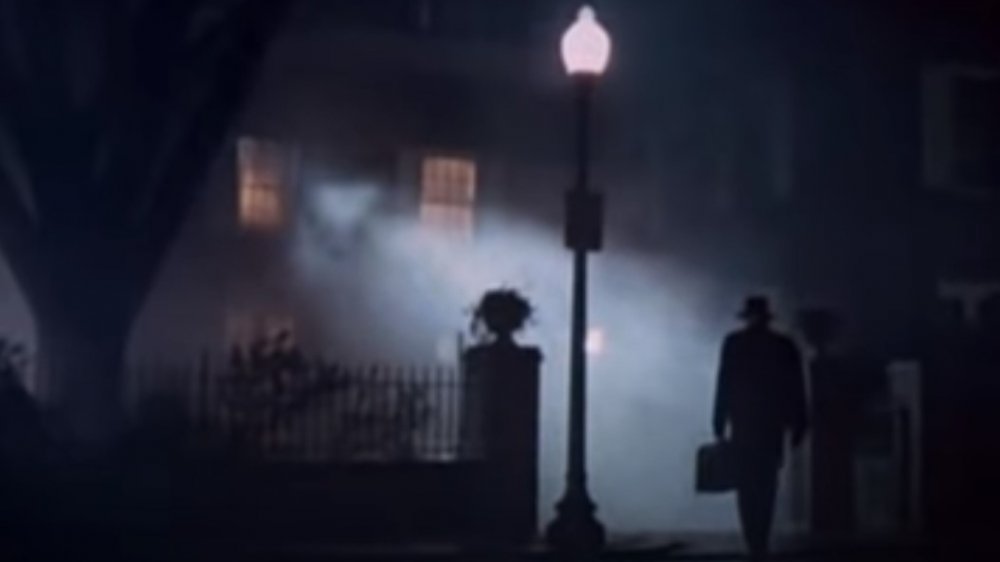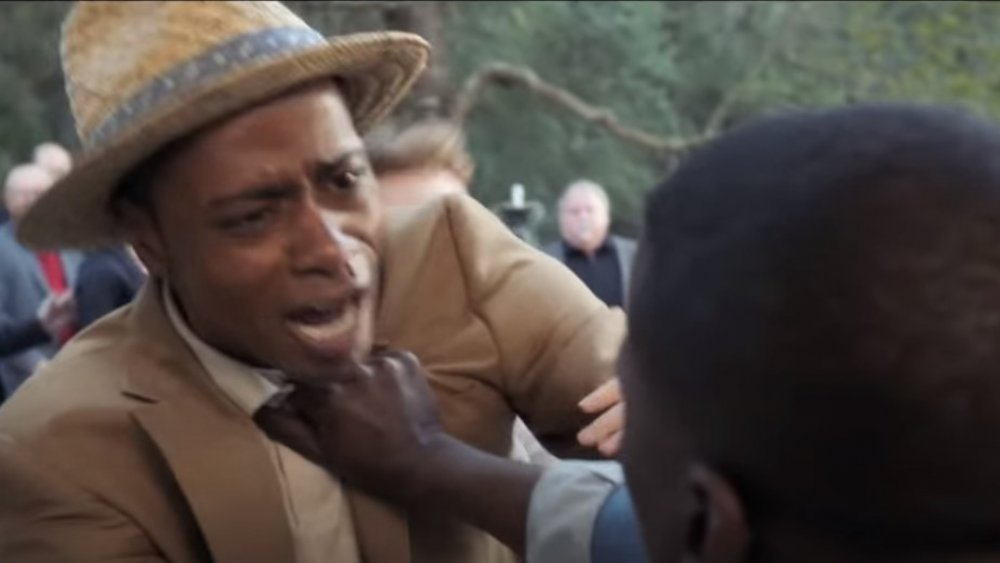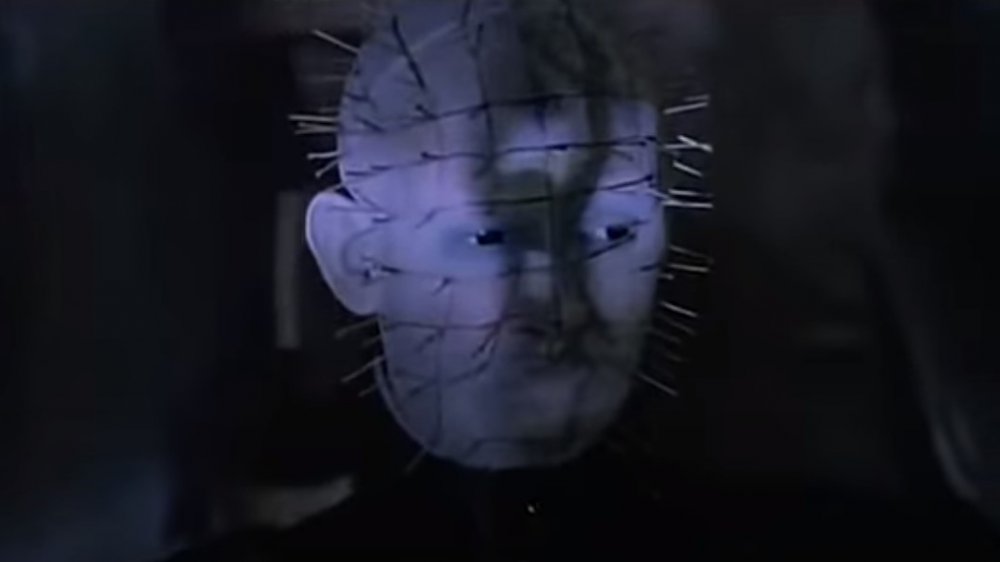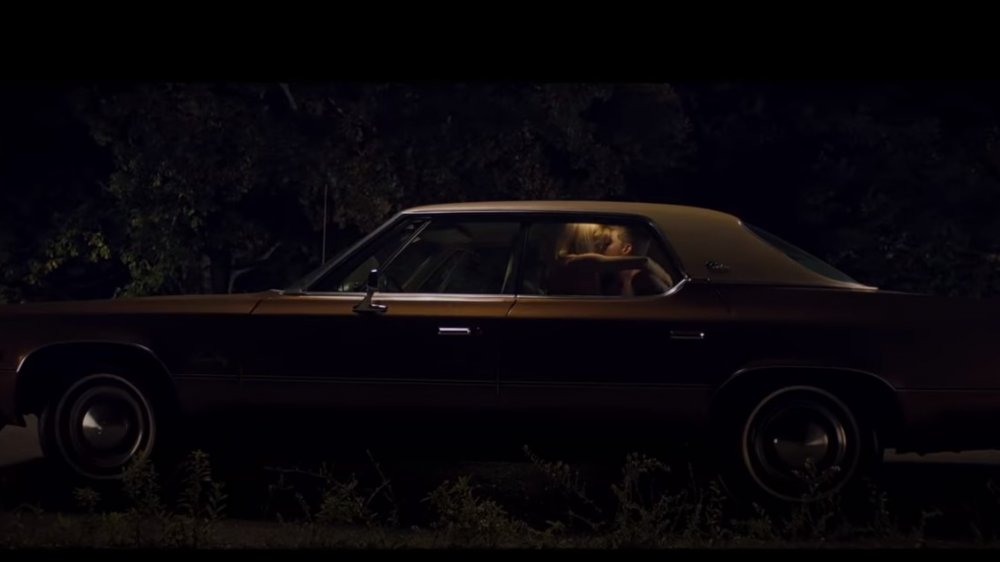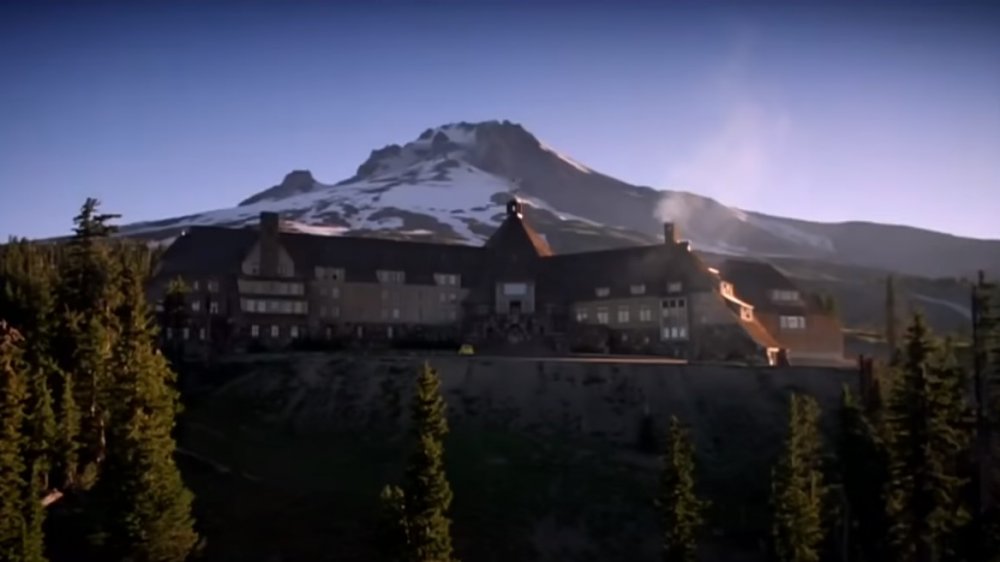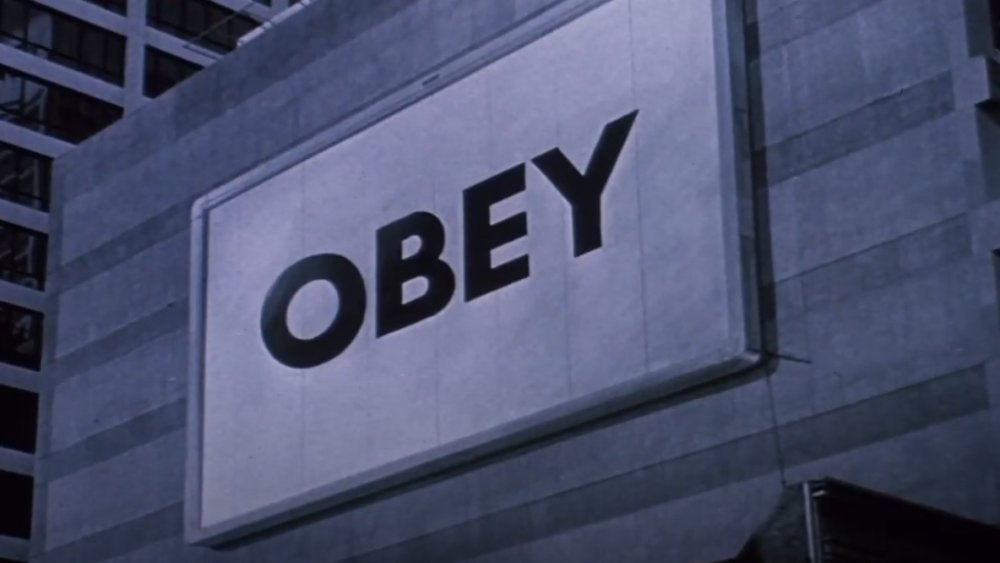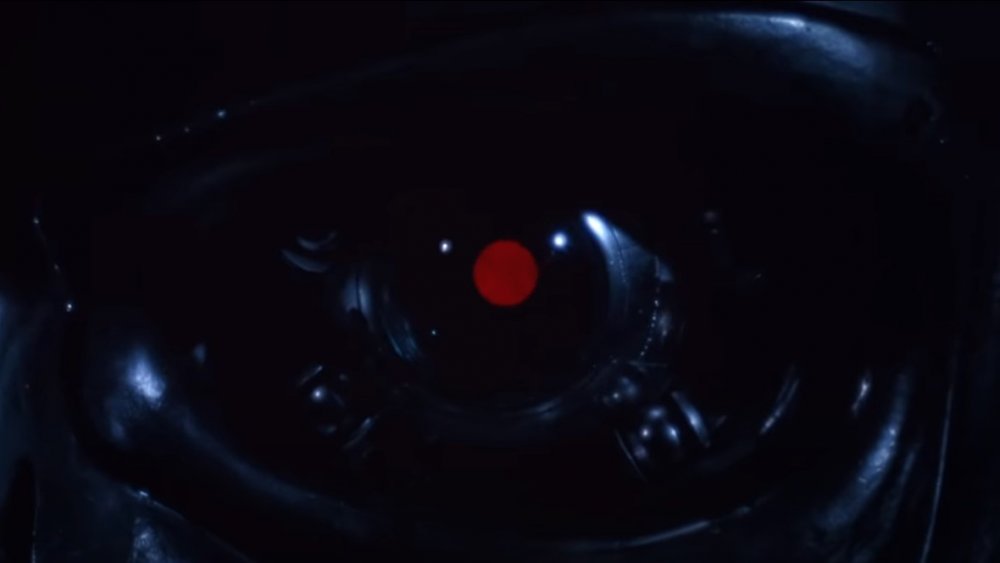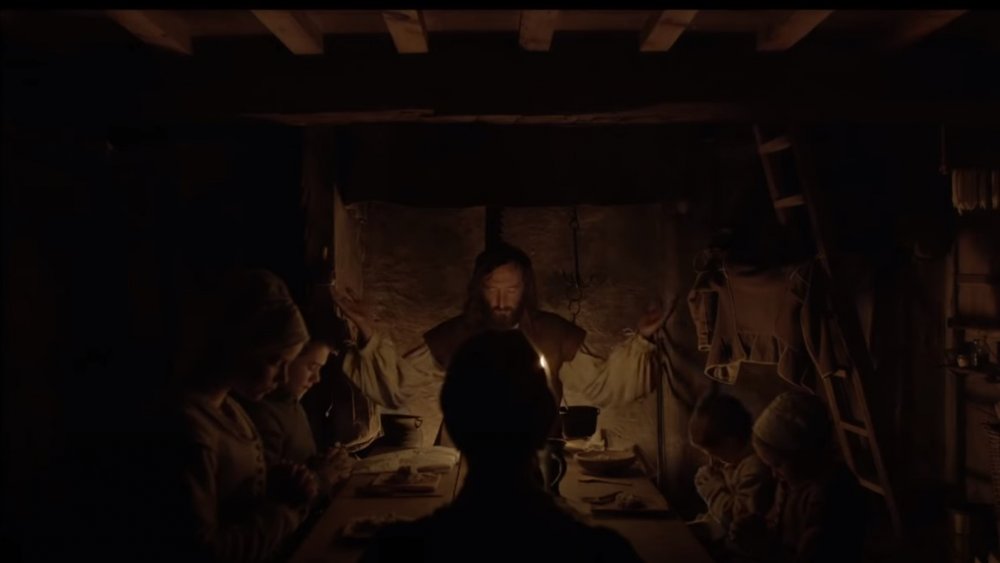Perfect Horror Movies That Should Never Be Remade
Horror movie remakes are a part of life. Nearly every major horror franchise has been rebooted or remade at least once, and some multiple times. Since horror is subjective and cheap to make, quality stuff can be difficult to find in the first place, so there's an excellent chance whatever remake comes out of the process will be trash.
All too often, horror remakes fail to capture what was great about the original films. Typically, it's due to the stuff that makes any movie bad: Poor casting, shoddy writing, aimless directing, studio interference, all that and more.
But sometimes it's because the original was so perfect, a remake is wholly unnecessary. Psycho is a masterpiece, so why on Earth did we need a shot-for-shot remake with Vince Vaughn as Norman Bates? Some horror films should be declared off-limits, with no remakes allowed. These scary classics should never, ever be touched again.
In space, no one can hear you scream
In 1979, director Ridley Scott, writer Dan O'Bannon, designer H.R. Giger, and a young, unknown actor named Sigourney Weaver teamed up to bring us the scariest thing in space since we discovered it's an endless, yawning black void. Alien was an instant hit, freaking out audiences and catapulting Weaver to instant fame. The beautiful sets, terrifying creature design, and non-stop tension made it stand out in a sci-fi market still clogged with ripoffs of 1977's Star Wars.
Immediately, knock-offs of Alien came out of the woodwork as well, but none could touch the original. The budget of these would-be cash ins were often very tiny, the creature designs were almost always laughably bad, and they simply weren't scary. Alien stood alone in the cat-and-mouse extraterrestrial horror genre.
Seven years later, we received a sequel, Aliens. However, this film eschewed the horror of its predecessor and focused more on action. While an outstanding film in its own right, Aliens and its follow-ups have never gone back to the horror well because there's simply no way they can improve upon the original. The closest we've gotten is 2014's Alien: Isolation, which was not a movie but a video game starring Ripley's adult daughter, and which continued the original film's legacy of inhuman, predatory horror. Even Prometheus, a kind of soft reboot of the series by original helmer Ridley Scott, goes for more of a sci-fi mystery vibe.
There's a witch in the woods
In 1999, no one had even heard of viral marketing yet. Then reports about three college-aged filmmakers who went missing in 1994 popped up everywhere. They were making a documentary on a local legend, the Blair Witch, and never came home. They had filmed everything, though, and that found footage was being cut together into a theatrical release called The Blair Witch Project.
Since making stuff up on the internet was still pretty new, people saw no reason to doubt it, and The Blair Witch Project became a sensation. While it didn't invent found footage, it was certainly the biggest at the time, and its premise seemed creepily plausible. Lots of people go missing in the woods all the time. And so, the newness of online media combined with the growth of homemade video in the 90s combined into something no one had ever seen before and would lay the groundwork for much of the media we consume now, decades later.
Because of the nature of technology and its nonstop forward march, The Blair Witch Project simply can't be remade. It was a touchstone in time. Other found footage horror movies have come and gone, and there was even an attempt at a soft reboot in the form of a sequel, Blair Witch, but none of these can recapture the exact cultural zeitgeist that made The Blair Witch Project more than just a movie about college students in some creepy woods.
The best use of Free Bird in cinema history
In 2005, before Rob Zombie had solidified himself as a filmmaker and was still mainly known for his musical career, he released The Devil's Rejects, a spree killer road trip movie about a trio of murderers on the run from the law. It was dark and gritty before those were buzz words, evoking a lo-fi 1970s horror vibe. It is his greatest film (or only good film, depending on who you ask) because it was the culmination of Zombie's artistic output to that point.
His music, music videos, and his film debut, House of 1,000 Corpses (a mostly unrelated predecessor that introduced the killers of this film), all had a retro-horror, grindhouse feel that laid the groundwork for The Devil's Rejects, and Zombie's fingerprints are all over it. It would be extremely difficult to remake because the movie is basically everything about Rob Zombie's creative output rolled up into one.
Not only that, but the cast performances absolutely make this movie. In keeping with 1970s serial killer thriller tradition, the plot is relatively simple, but the chemistry between Sid Haig, Bill Moseley, and Sherri Moon Zombie is irreplaceable. If someone ever foolishly tried to remake The Devil's Rejects, they'd likely find they only have two possible outcomes: Make a worse version of the original, or create a redundant and identical version to what we already got in 2005.
The shortest distance between two points is a portal to Hell
In the 90s, director Paul W.S. Anderson (not to be confused with Paul Thomas Anderson) already had a reputation for directing schlock such as the Mortal Kombat feature film and would later bring us cheese-fests like Alien vs. Predator and the Resident Evil films. But tucked in between those two eras of goofy video game adaptations was a particularly great gem: 1997's Event Horizon.
A space-bound horror film that manages to not be a cheap imitation of Alien, Event Horizon features a rescue crew searching for survivors of the titular ship, which had a unique engine that traveled by creating holes in spacetime. As the crew and the ship's designer, Dr. Weir (Sam Neill) investigate, it becomes clear the Event Horizon's wormholes actually cut straight through Hell itself. It's a great premise (and shamelessly ripped off from id Software's 1993 game DOOM), which is exactly why it's the kind of thing that can only be done once. Any remake attempts would just be revisiting the same thing we've already seen.
In fact, fans of the film really just want one thing — over a half hour of excised footage purportedly even more horrific than what was shown on screen, but was lost after editing. A TV adaptation is supposedly in the works, but in fairness, that's not quite a remake and might actually turn out to be interesting.
The devil inside
The 1973 release of The Exorcist marked the dawn of the horror blockbuster. The film's claim of being based on true events made it all the more terrifying, and the story of a little girl possessed by a demonic force quickly became one of the most popular hits of the 1970s and firmly inserted itself into pop culture. The slow burn movie, dripping with an ominous sense of dread, pitted the horrors of the occult against a priest doubting his own faith and feeling his relevance slipping in 1970s America.
While the film has had a number of sequels and prequels of mixed quality, as well as a television series that's honestly better than you'd expect, thankfully no one has tried to remake The Exorcist. The other films in the series struggle to muster scares and storytelling as good as the original, with 1990's The Exorcist III coming closest, but even that one took many years for audiences to appreciate.
While a remake of The Exorcist is probably inevitable, it seems like such a thing would be unnecessary. The original still holds up fantastically against other horror films, as it pioneered a lot of the tropes horror movies in the decades since have relied on. The premise has been retread numerous times by unrelated exorcism films, but it's never quite as interesting or scary as creepy ol' Pazuzu.
No, really, you should leave
Comedic heavy hitter Jordan Peele of Key & Peele and MadTV fame was already poised to be a big name when he released a trailer for a horror film called Get Out. While Peele had never made his love of horror a secret, people were baffled he would make a serious scary movie. Initially, rumors alleged the whole thing was a joke, and the movie was actually a comedy the trailer made appear horrific. Upon its release in 2017, though, Get Out proved that entirely untrue.
While social commentary has always had a big hand in horror, from Romero's Living Dead films to The Purge, Get Out's story of normal black people being exploited and transformed by what appears to be a community of well-meaning rich WASPs isn't just highly suspenseful, but downright chilling. Alongside still-lingering racial tensions in America, Get Out is a big, flashing warning sign for the late 2010s reading, "Be careful who you trust."
While it's too soon to say similar social tensions might or might not be a thing in the future, a remake of Get Out pretty much never needs to happen. The film is a perfect encapsulation of the aftermath of America's first black President, a time when many political pundits thought race relations in America would get better, but were sadly incorrect.
We have such sights to show you
Clive Barker wasn't yet a household name when he wrote and directed his debut film in 1987. His short story collections, The Books of Blood, had made some buzz in the literary world, but Hellraiser made him an overnight sensation. In it, a milquetoast rich couple, Larry and Julia, and their daughter, Kirsty, are dragged into an occult horror thanks to Larry's ne'er-do-well brother, Frank, who stumbles across a weird puzzle box that summons leather-clad demons who turn him into a skinless monster. If you've not seen it, it's exactly as weird as it sounds.
The creepy tone and amazing demonic designs, created by Barker himself, would have been enough to make the movie a masterpiece, but the performances really sold this one. Namely, that of the unnamed lead Cenobite demon fans quickly dubbed Pinhead, played by Doug Bradley. His calm, detached demeanor to the horrors going on around him (and sometimes caused by him) and casual hedonism made him one of horror's creepiest villains, even to this day.
There are numerous sequels to the film, several of which aren't half-bad, including one by Doctor Strange helmer Scott Derrickson, and while several remake attempts have been floated, they never seem to go anywhere. This is for the best, as it would be extremely hard to recapture this weird mix of occult horror and stark commentary on what bored rich people got up to in the 1980s.
What comes after
Coming-of-age horror can really shine, because after all, what's scarier than growing up? Nowhere is this more evident than David Robert Mitchell's 2014 film It Follows. A monster which is invisible except to those who have had sex with someone else who can see the monster doggedly pursues its victims, but only at a walking pace. Regardless, it will catch up to them eventually if they stay still for too long.
What's especially intriguing about the film is its feeling of timelessness. The cars are older, the stuff on TV is older, but one character has this weird flip phone e-reader thing, and the movie's setting of Detroit is clearly after the city fell on tough times in the latter part of the 20th century. While it's a cool creative choice, it also makes the movie resistant to remakes, since it already feels like it could have been set at basically any time period.
Not just that, but its themes are distinctly early 21st century, like the sense of isolation lead character Jay feels from everyone else once the monster fixates on her and the quiet of the mostly empty, run-down city. Intimacy plays a big part in this, too, as the ability to see the monster is only passed on through sex, but physical touch is becoming less common in our modern lives.
Don't even think about it, Doc
Stanley Kubrick is one of the most notorious auteur filmmakers in cinema history, and as such, any of his films will naturally have some protection against the dreaded remake plague. Who really wants to mess with a guy whose fans are so wildly devoted there's an entire documentary just about their bizarre theories? 1980's The Shining is particularly revered, and has even had serious homages in two mainstream films in recent years. 2018's Ready Player One and 2019's Doctor Sleep both featured sequences set in the Overlook Hotel and were very reverent of Kubrick's film.
And before you say, "Wait a second, there was already a remake of The Shining," was there really? The 1997 TV miniseries is also based on Stephen King's novel, but it's far closer to the novel than Kubrick's version, which had quite a few differences setting it apart from the novel. Uncle Steve himself may not like Kubrick's changes, but critics and audiences did, and it's regarded as one of the scariest horror movies, period.
This is one of the few instances where a remake isn't just unnecessary, but completely illogical. Every piece of the original film supports another piece, like some nice furniture or something. If one thing was off, it could probably still hold together, but it wouldn't be nearly as great. It would take a lot of bravado for a director to actually want to take that on.
They will hopefully never live again
Have you heard this one? A group of poor people discover a secret conspiracy by the elite class to control the populace. While it sounds like something you'd find on the political side of Twitter, it's also the plot to 1988's John Carpenter masterpiece, They Live. A down-on-his-luck drifter finds eerie sunglasses that reveal our society is plastered with brainwashing subliminal messages by alien invaders posing as humans. It was making a particular statement about the world then, and it just so happens to resonate now, as well.
What really makes this movie unique is its campy, punk-ish atmosphere. It's not a terribly serious movie outside of the premise. "Rowdy" Roddy Piper was not exactly a Shakespearean actor and spends most of the movie spouting oddly hilarious one-liners. Keith David, a much better actor, basically spends the movie just putting up with Piper. There's also a seven minute long brawl between the two that doesn't advance the plot at all, but damn is it entertaining.
What would a remake even accomplish? The original still holds up today and is a great blend of dark humor and creepy sci-fi. It's even based on a short story, "Eight O'Clock in the Morning" by Ray Nelson, published in 1963. It's a perpetual story that freaks us right out — inhuman creatures who control a world that is nothing like it seems. In some ways, it's The Matrix without computers.
It doesn't feel pity, or remorse, or fear
While The Terminator series is primarily known for its action/sci-fi sequels, it's easy to forget the original was a horror movie. In fact, other than the antagonist being a cyborg, there's not a whole lot of sci-fi to it at all. It's more like a monster flick except the monster happens to be a killer robot from the future. At most, it's mild cyberpunk.
Each successive sequel or soft reboot strayed further and further away from the horror roots and its themes of fearing what technology might bring and focuses more on the personal drama of the Conner family and the T-800, which just keeps getting manufactured and sent back in time even though the humans in the past clearly know what one looks like now. Part of that is because the second film did a great job of raising the stakes of its predecessor, but it's also because James Cameron kind of nailed the horror genre in the first go-round.
Any remake would have to contend not just with the pacing and atmosphere of the original, but the rest of the series' legacy as well. While producers could go back to the original's roots, that's not really what the movies are about anymore, and that's fine. A reboot of the series will likely come eventually, but the chances of the filmmakers revisiting a solid, tense killer robot horror film are highly unlikely.
Wouldst thou like to live deliciously?
America was largely settled by highly religious Puritans, something that still has echoes centuries later. But these early pioneers were called Puritans for a reason, and they were notoriously unbending in their zealotry. 2015's The Witch has this on full display as a family is ousted from their community due to the father's overbearing piety.
After the family sets up an isolated homestead and becomes self-reliant, the cracks begin to appear as they come to believe a witch is causing them misfortune, which spirals into the various family members accusing one another of a pact with the devil. The supernatural elements are actually pretty limited and not the focus. Instead, the film zeroes in on how the family is torn apart by uncertainty.
While themes of an unseen enemy and paranoia are pervasive throughout cinema, what makes The Witch unique is how it captures its setting so thoroughly. It doesn't feel like a movie made in 2015, but a direct peek into the 1600s religious zealotry that made the Salem witch trials possible. A remake just wouldn't have anything new to bring to the table. Sure, they could change the time frame or something, but then they'd lose much of what makes the movie so scary — a family in the middle of nowhere and no one to turn to for help.
